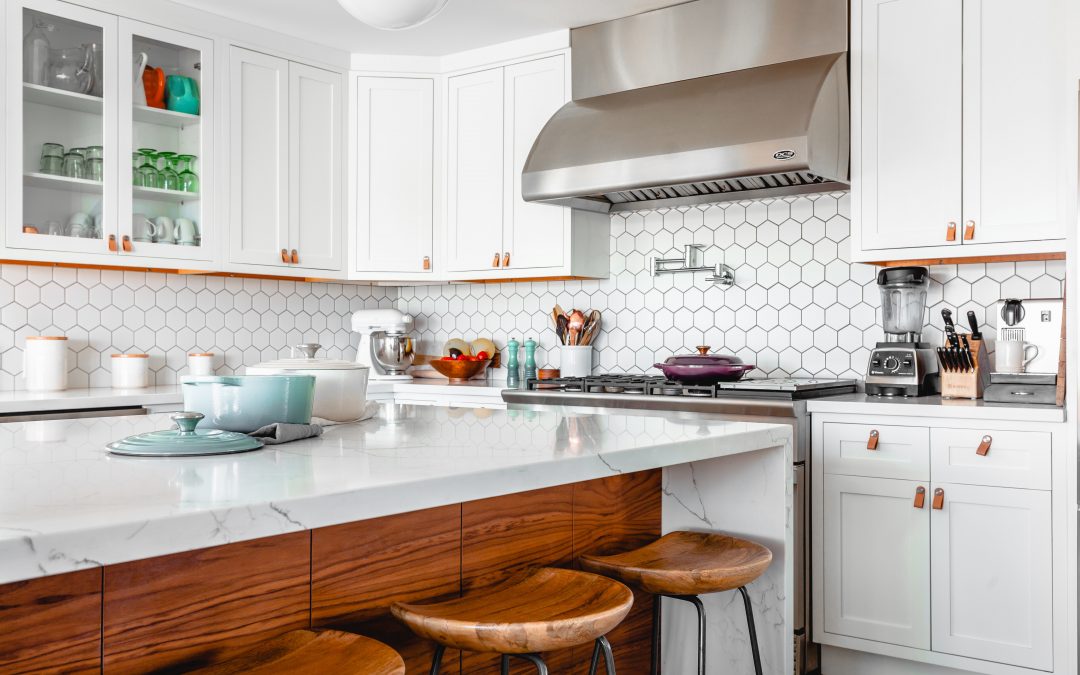Kitchen and bathroom remodels are the most popular ways to refresh a house and increase its resale value. However, there is a growing concern that remodels and renovations create a great deal of waste and consume a great deal of resources. Here are four ways to approach kitchen remodeling in a sustainable way:
Sustainable Materials
Sustainable materials are materials that can be renewed or regrown and, in that respect, can be harvested forever without ever running out. When referring to wood, such as the wood used to make custom kitchen cabinets, sustainability refers to a combination of factors, including the management of the forest where the wood is harvested, the species of tree that is providing the wood, and the coatings or treatment of the wood after harvesting.
A sustainable forest management plan is based on removing only as many trees as the forest can replace, thereby ensuring that the forest will always exist. For example, mature trees may be selected and identified for harvesting, while young trees are allowed to grow. The number of trees that germinate or are planted will dictate how many trees can be sustainably harvested.
Certain species of wood grow faster than other species. Pine, fir, and bamboo grow fast enough to be considered sustainable. Other species have such large populations that they can be harvested to meet demand without over-harvesting based on the number of new saplings. For example, white ash, black cherry, mahogany, maple, and white oak grow throughout the United States and can be sustainably harvested.
Custom kitchen cabinets incorporate more than just wood. Glue (whether to hold parts together or form particleboard, fiberboard, and plywood), paint, stains, and varnishes are all chemical products. Treated wood can off-gas toxic chemicals, such as formaldehyde.
Groups such as the Kitchen Cabinet Manufacturer’s Association (or KCMA) have recognized the demand for sustainable products and have created programs to certify manufacturers of custom cabinets. Mouser cabinets, for example, have been certified by the KCMA under its environmental stewardship program which certifies that their custom kitchen cabinets have been made in a sustainable and environmentally responsible manner.
Durable Materials
Longer lasting kitchen remodels are more environmentally friendly because they produce less waste as they are repaired, refreshed, or replaced. Custom kitchen cabinets can last up to 50 years, depending on the quality of the craftsmanship and materials. Considering the amount of wood and cabinet hardware that is recycled or thrown away during kitchen remodels, selecting high-quality cabinets made from durable materials can go a long way to ensuring a green remodeling project.
Many kitchen remodels include custom countertops. Again, more durable materials, like slate, marble, and granite countertops, can last forever. Even if countertops are eventually replaced, granite, slate, and marble can be reinstalled in another kitchen or bathroom project or recycled for use in landscaping, flooring, and outdoor walkways.
Energy Efficient Light Fixtures
Most people are aware of energy-efficient light bulbs, such as fluorescent, compact fluorescent (or CF), and light-emitting diode (or LED) light bulbs. However, many people are not aware that the Environmental Protection Agency’s Energy Star program also certifies light fixtures and ceiling fans. These light fixtures and ceiling fans are certified based on consuming less power, distributing light more efficiently and effectively, producing less heat, and delivering energy-saving features such as dimming and automatic shut off or activation. Each traditional light fixture that is replaced with a new energy-efficient light fixture can save up to $80 in energy costs over its lifetime, effectively offsetting the cost of purchase and installation in many cases.
Environmentally Friendly Appliances
The Energy Star program also certifies energy and water-efficient appliances. Washing dishes by hand typically requires about eight gallons of water. Energy Star certified dishwashers may use as little as six gallons of water, making them more water-efficient than hand washing.
Improved insulation and technological advances in compressors and compressor controllers have reduced energy consumption by refrigerators and freezers substantially. Energy Star certified refrigerators can save around $60 per year on electricity compared to older models.
A green and sustainable kitchen remodel is possible. Seeking out sustainable custom kitchen cabinets, such as Mouser cabinets, durable materials for custom countertops, energy-efficient lighting fixtures, and environmentally friendly appliances can give your kitchen a fresh, new look and create a sustainable space.

